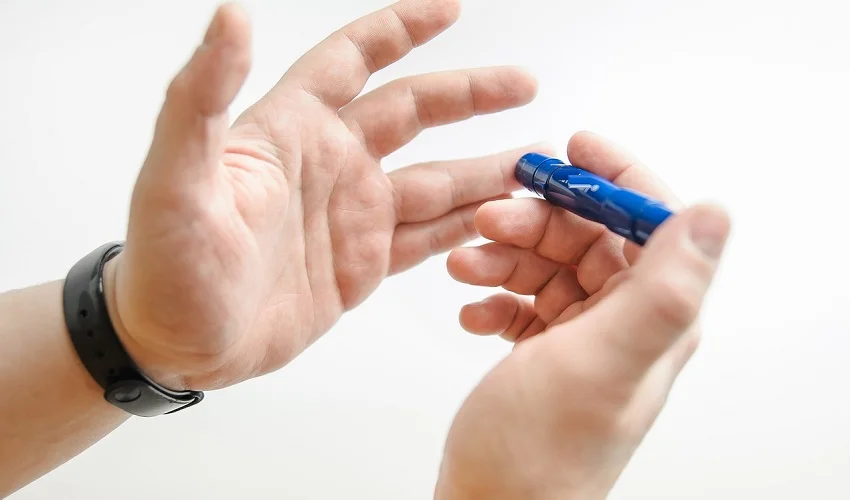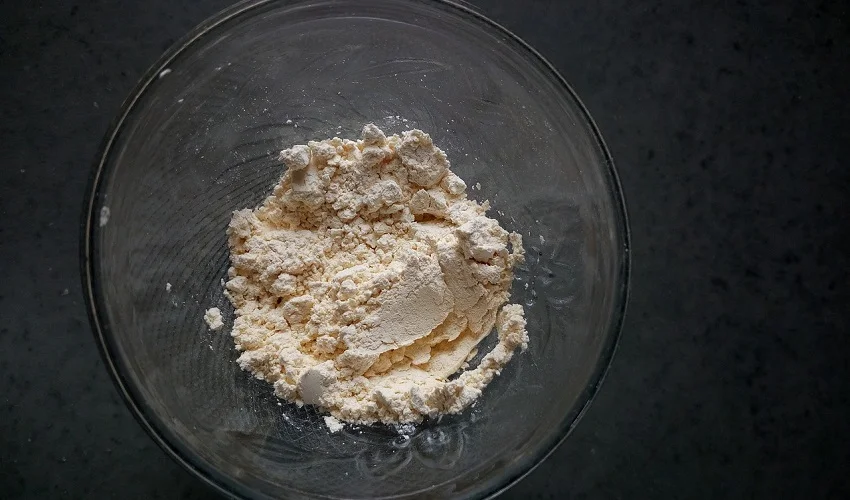Living with diabetes can be challenging, both physically and emotionally. Diabetes management requires a careful balance of medication, diet, exercise, and self-care. However, amidst the seriousness of the condition, laughter and humor can play a significant role in improving the quality of life for individuals with diabetes. This article explores the various benefits of laughter and humor in diabetes management, shedding light on the positive impact they can have on emotional well-being, stress reduction, physical health, and overall disease control.
The Emotional Benefits of Laughter and Humor
Living with diabetes can be challenging and demanding, often causing emotional distress and a significant impact on a person’s overall well-being. However, amid the seriousness of managing this chronic condition, there is a powerful and often overlooked tool that can help alleviate emotional burdens and promote better diabetes care: laughter and humor.
Laughter has long been recognized as a natural and universal human response, capable of creating positive emotional and physiological changes within the body. When applied to the realm of diabetes care, laughter and humor can serve as valuable resources, offering numerous emotional benefits to individuals facing the daily realities of this condition.
Psychological Impact of Diabetes
Living with diabetes can have a profound psychological impact on individuals. The constant management of blood sugar levels, potential complications, and lifestyle adjustments can lead to increased stress, anxiety, and even depression. Incorporating laughter and humor into daily life can help alleviate these emotional burdens.
Laughter as a Stress Reliever
Laughter is a natural stress reliever. It triggers the release of endorphins, the body’s natural feel-good chemicals, which promote relaxation and reduce stress. By engaging in laughter and humor, individuals with diabetes can alleviate the psychological strain associated with the condition.
Boosting Mood and Psychological Well-being
Humor and laughter have a positive impact on mood and psychological well-being. They can improve overall outlook and increase optimism, leading to a more positive mindset in dealing with the challenges of diabetes. By finding joy in everyday life, individuals can enhance their emotional well-being.
The Physiological Impact of Laughter and Humor
Humor has long been recognized as a powerful tool for promoting well-being and improving overall quality of life. Laughter, in particular, has been found to have a positive impact on physical and mental health, including reducing stress, boosting immune function, and enhancing cardiovascular health. Given these benefits, researchers have turned their attention to investigating the specific effects of laughter and humor in the context of diabetes management.
The Science Behind Laughter
Laughter involves a complex interplay of physiological processes. When we laugh, our brain triggers facial muscle movements, deep breathing, and the release of endorphins. These physiological responses have wide-ranging effects on the body, including improvements in cardiovascular health, immune system function, and pain tolerance.
Release of Endorphins and Reduction of Stress Hormones
Laughter triggers the release of endorphins, which act as natural painkillers and mood enhancers. Simultaneously, it reduces the production of stress hormones such as cortisol and adrenaline, which are known to negatively impact overall health and diabetes management.
Immune System Enhancement
Research suggests that laughter and humor can strengthen the immune system. Regular laughter increases the production of antibodies and activates immune cells, providing a defense against infections and promoting overall well-being.
Cardiovascular Health Improvement
Laughter has been linked to improved cardiovascular health. It enhances blood flow, increases heart rate, and improves the function of blood vessels. These physiological effects can contribute to better blood pressure control and a reduced risk of cardiovascular complications associated with diabetes.
Laughter and Diabetes Self-Management
Laughter is a universal human experience that has been recognized for its positive effects on physical and mental well-being. Research suggests that laughter can contribute to stress reduction, immune system enhancement, pain relief, and improved cardiovascular health. In the context of diabetes management, laughter has the potential to complement traditional approaches and offer unique advantages in promoting overall health and well-being.
This emerging field of study is exploring the potential impact of laughter on various aspects of diabetes self-management. One key area of investigation is the psychological impact of laughter on diabetes-related stress and emotional well-being. Stress can significantly affect blood sugar levels and the ability to adhere to self-care routines. By incorporating laughter into diabetes care, individuals may experience reduced stress levels and improved emotional resilience, leading to better self-management outcomes.
Improved Diabetes Self-Care Adherence
Managing diabetes requires consistent self-care, including medication adherence, healthy eating, exercise, and monitoring blood glucose levels. Laughter and humor can make these daily tasks more enjoyable, increasing motivation and adherence to self-care routines.
Positive Influence on Blood Glucose Levels
Stress and negative emotions can adversely affect blood glucose levels. Laughter and humor have been shown to lower blood sugar levels and improve glucose tolerance. By incorporating laughter into their lives, individuals with diabetes may experience better glycemic control.
Facilitating Doctor-Patient Communication
Effective communication between healthcare providers and individuals with diabetes is crucial for successful disease management. Laughter and humor can foster positive relationships, improve trust, and facilitate open and honest conversations about concerns, treatment options, and self-management strategies.
Coping with Diabetes-Related Challenges
Dealing with diabetes-related challenges, such as complications, lifestyle adjustments, and the stigma associated with the condition, can be emotionally draining. Laughter and humor serve as coping mechanisms, helping individuals to face these challenges with resilience, optimism, and a more balanced perspective.
Integrating Humor into Daily Diabetes Routine
Living with diabetes requires consistent self-care, from monitoring blood sugar levels and administering medication to making mindful food choices and maintaining an active lifestyle. However, the seriousness of managing diabetes can sometimes overshadow the importance of emotional well-being and enjoyment in one’s daily routine. This is where humor can play a transformative role.
Integrating humor into your daily diabetes routine can bring a sense of lightness and positivity, making the journey more enjoyable and manageable. While it does not replace medical advice or treatment, humor can serve as a powerful tool to alleviate stress, promote resilience, and foster a healthier mindset in dealing with the challenges of diabetes.
Seeking Supportive Relationships
Connecting with others who understand the challenges of diabetes can provide a sense of community and support. Engaging in light-hearted conversations and sharing humorous experiences can bring joy and laughter into daily life.
Laughter Therapy and Comedy Programs
Laughter therapy, also known as laughter yoga or laughter clubs, involves engaging in laughter exercises and techniques to promote physical and emotional well-being. Additionally, watching comedy shows, attending comedy events, or participating in comedy programs can provide regular doses of laughter and humor.
Humorous Diabetes Education and Resources
Diabetes education can be made more engaging and enjoyable by incorporating humor into educational materials and resources. Using humorous anecdotes, cartoons, or videos can help individuals absorb important information while also lightening the mood.
Finding Joy in Everyday Life
Encouraging individuals to find joy in everyday life, beyond the context of diabetes, can contribute to their overall well-being. Engaging in hobbies, spending time with loved ones, and pursuing activities that bring pleasure can all promote laughter and humor.
Practical Tips for Incorporating Laughter and Humor
Living with diabetes can be challenging, both physically and emotionally. Managing blood sugar levels, making lifestyle changes, and coping with the daily demands of the condition can sometimes feel overwhelming. However, incorporating laughter and humor into diabetes care can be a powerful tool in improving overall well-being and enhancing the management of the condition.
Humor has been shown to have numerous health benefits, including reducing stress, improving mood, boosting the immune system, and promoting overall relaxation. When it comes to diabetes, humor can play a significant role in reducing anxiety, enhancing patient-doctor communication, increasing adherence to treatment plans, and fostering a positive outlook.
Watching Comedy Shows and Films
Make time to watch comedy shows, sitcoms, or funny movies that bring laughter into your life. Laughter is contagious, and sharing laughter with loved ones can enhance the experience.
Engaging in Social Activities
Participate in social activities and gatherings that foster laughter and humor. Surround yourself with friends and family who have a positive and lighthearted outlook on life.
Cultivating a Positive Mindset
Develop a positive mindset by focusing on the good things in life. Practice gratitude and maintain a sense of humor even in challenging situations. Look for the funny side of things and try not to take everything too seriously.
Participating in Laughing Exercises
Explore laughter yoga or laughter therapy classes in your area. These exercises involve intentional laughter and breathing techniques, promoting relaxation, stress reduction, and improved well-being.
Joining Support Groups and Online Communities
Connect with others who share similar experiences by joining diabetes support groups or online communities. Engaging in discussions, sharing stories, and finding humor in shared experiences can provide a sense of camaraderie and support.
In conclusion, laughter and humor have a profound impact on the lives of individuals managing diabetes. By incorporating laughter into daily routines, individuals can experience emotional well-being, stress reduction, improved physical health, and enhanced disease management. It is crucial for diabetic patients and caregivers to recognize the therapeutic potential of laughter and humor as complementary tools for diabetes management. By embracing humor and finding joy in life, individuals can lead fulfilling lives while effectively managing their diabetes.




